In a scandal that has rocked the sports community, the Canadian women's Olympic football team has faced severe consequences after being caught in a drone spying incident. The team has been penalized with a six-point deduction, and three of its coaches have received one-year bans, after the controversial use of a drone to spy on their New Zealand opponents during a training session before their opening game.
The controversy erupted when two assistant coaches were discovered operating a drone over New Zealand's practice ground, an act revealed on 22 July and formally reported by the New Zealand team. This event has not only tainted the reputation of the involved individuals but also drawn the entire Canadian soccer federation into the spotlight for failing to ensure its members adhered to tournament rules.
FIFA, the governing body of world football, promptly sanctioned the Canadian team. Along with the point deduction, the federation was slapped with a hefty fine of 200,000 Swiss francs, amounting to approximately £176,000. These actions underline FIFA's commitment to maintaining fair play and integrity within the sport. In their statement, the FIFA judges emphasized that head coach Bev Priestman, hired in 2020 to lead the team, along with assistants Joseph Lombardi and Jasmine Mander, bore responsibility for 'offensive behavior and violation of the principles of fair play.'
Consequences for the Team
As a result of this incident, Canada, which clinched the gold medal at the Tokyo 2020 Olympics, faces a challenging path in the current tournament. Although the point deduction does not automatically eliminate them from the competition, it severely hampers their chance of advancing. To compensate for the lost points and ensure progression, the team must secure victories in all three of their group stage matches.
With head coach Bev Priestman and her assistants suspended, Andy Spence is poised to guide the team through the remainder of the Olympics. This leadership change so close to critical matches could potentially impact the team’s on-field performance and morale. Team dynamics, strategies, and the ability to adapt quickly to this change could be defining factors in their upcoming games.
Exploring Legal Routes
The Canadian federation, along with the affected coaches, retains the option to contest the sanctions. They can appeal the decision at the Court of Arbitration for Sport's special Olympic court in Paris—a route currently being explored by the Canadian Olympic Committee (COC). David Shoemaker, the Chief Executive of the COC, indicated that new evidence has surfaced regarding prior instances where drones had been used against opposing teams, casting doubts on the extent of Ms. Priestman’s awareness and involvement.
In light of this new revelation, it remains uncertain how the appeals process might unfold. The emerging information could either mitigate or exacerbate the penalties imposed on the Canadian team, adding another layer of complexity to an already convoluted scenario. The outcome of these appeals could set a precedent for how similar situations are handled in the future, stressing the importance of thorough investigations and fair adjudication.
A Stain on Fair Play
This drone spying scandal has undeniable repercussions on the sport's fundamental ethos of fair play. The actions of the Canadian coaches not only undermined the spirit of honest competition but also cast a shadow over the achievements of a team that had previously stood as champions. This incident serves as a sobering reminder of the lengths to which some individuals might go to gain a competitive edge, and the critical importance of maintaining integrity within sports.
For the Canadian women's football team, the immediate focus must now shift to damage control and reclaiming their standing both within the Olympics and in the wider sports community. This involves not only adjusting their strategy on the field but also addressing the moral and ethical facets of their recent actions. A demonstrated commitment to fair play and integrity in the coming matches will be vital for restoring trust and respect.
Implications for Future Tournaments
Looking ahead, this situation could have lasting implications for how technology is monitored and regulated in future tournaments. Stricter surveillance and protocols might be introduced to prevent similar occurrences, ensuring a level playing field for all participants. This could involve enhanced guidelines on the use of drones and other technological aids, alongside rigorous enforcement mechanisms.
For athletes and coaches worldwide, this scandal stands as a cautionary tale on the ethical boundaries in competitive sports. Achieving success through unfair means not only jeopardizes career prospects but also tarnishes the collective effort and spirit of the team. The sporting community must continue to strive for excellence through hard work, dedication, and an unwavering commitment to the principles of fair play.
As the Canadian team prepares to move forward amidst this turmoil, the broader lesson for all in the sporting world is clear: Integrity is as essential to the game as skill and strategy. Upholding these values ensures that the achievements on the field remain a true reflection of talent, effort, and sportsmanship.

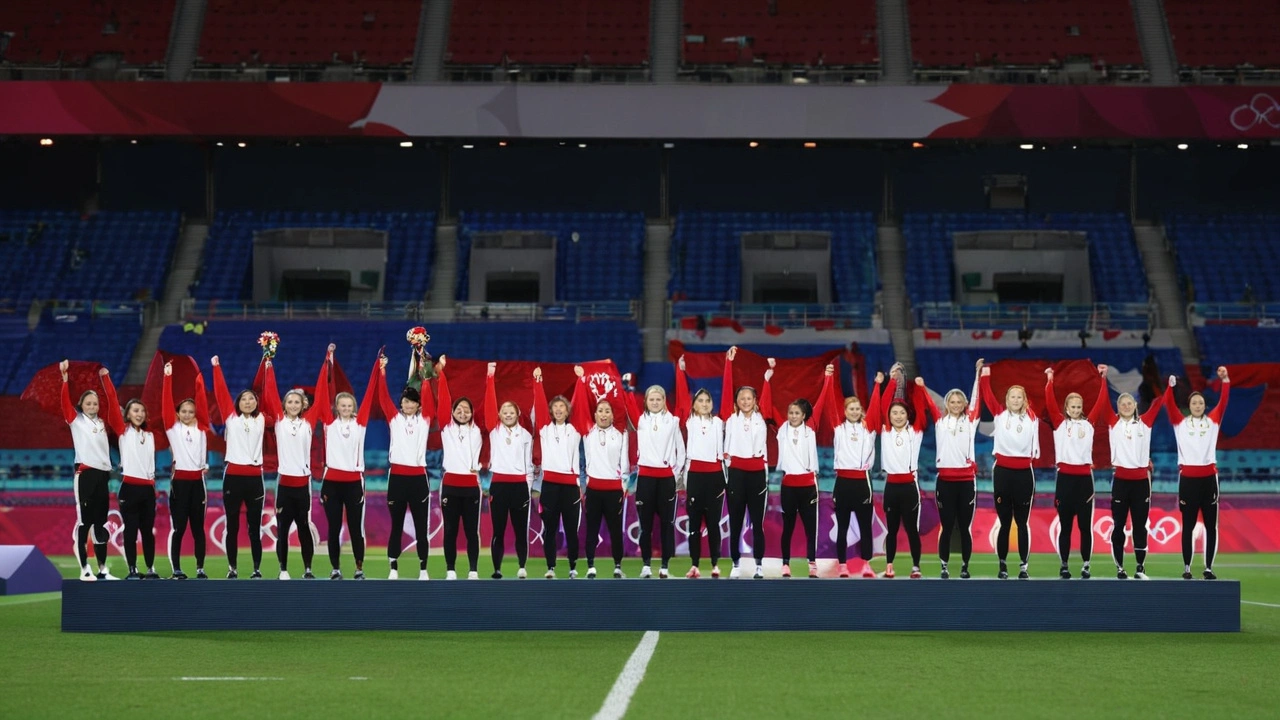
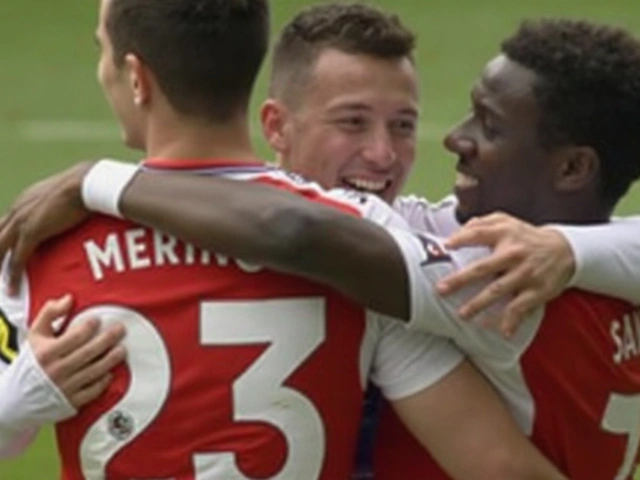
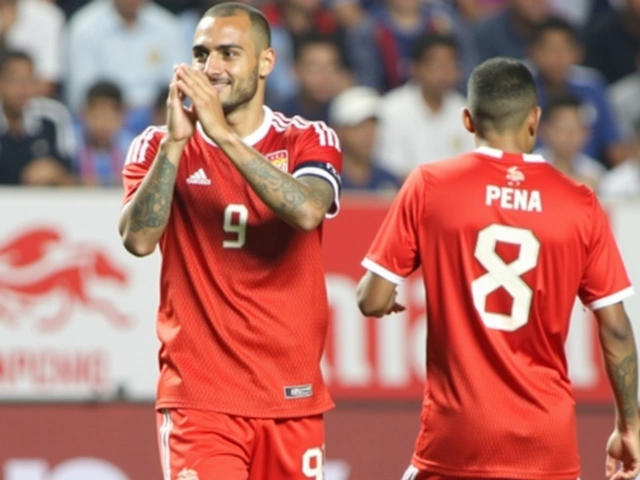

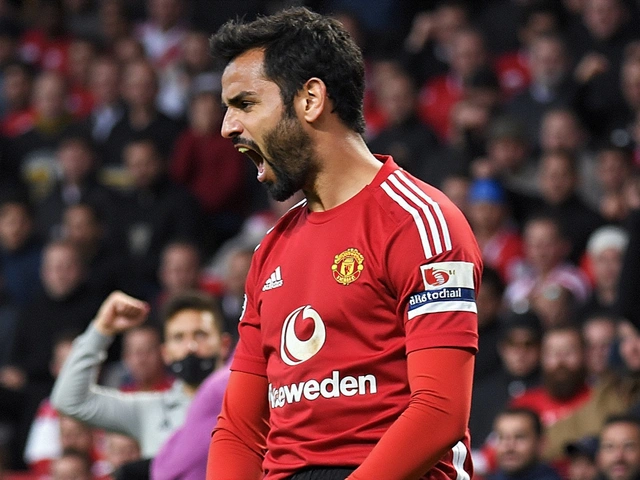

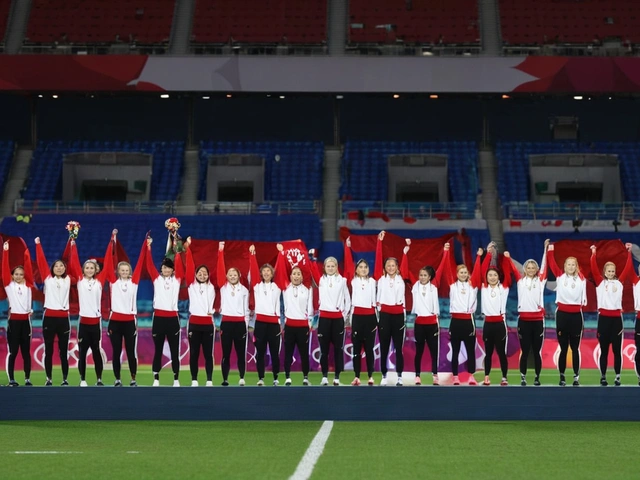
Santosh Sharma
July 28, 2024 AT 17:53Upholding integrity is essential; without it the sport loses its soul.
All teams must embrace fair play, especially at the Olympic stage.
When rules are broken, the damage reverberates far beyond the scoreboard.
Canada’s misstep serves as a stark reminder that success built on deception is fragile.
Let us hope the federation learns and implements stricter oversight.
Only then can the spirit of competition thrive unhindered.
yatharth chandrakar
July 28, 2024 AT 17:55According to FIFA’s technical regulations, any aerial device used within a competition zone without explicit permission constitutes a violation.
Such rules were reinforced after the 2018 World Cup incident where a team was fined for unauthorized footage.
The Canadian federation now faces a precedent that will likely tighten drone licensing protocols.
Stakeholders should anticipate mandatory pre‑approval forms and real‑time monitoring for future tournaments.
Ensuring compliance not only protects opponents’ privacy but also preserves the credibility of the sport.
Vrushali Prabhu
July 28, 2024 AT 17:56Wow, what a mess! Those coaches thought they could pull a fast one with a little buzzing gizmo, but the truth blew up like a fireworks show.
Honestly, it’s a total slap‑in‑the‑face for any fan who believed in pure competition.
Now the whole squad’s got a cloud over them, and the fans are left feeling sooo betrayed.
Let’s hope they sort this out quick before the next match – otherwise the whole vibe is going to be deflatedd.
parlan caem
July 28, 2024 AT 17:58This is a disgrace that stains the very foundation of the game.
The coaches displayed a brazen contempt for the rules, and the federation’s lax oversight is unforgivable.
Fans deserve better than a team that resorts to spying to gain an edge.
Such behavior erodes trust and should be punished with the harshest possible sanctions.
Mayur Karanjkar
July 28, 2024 AT 18:00From a governance perspective, the breach undermines compliance protocols and exposes systemic risk in operational oversight.
Sara Khan M
July 28, 2024 AT 18:01Totally lazy move 🙄
shubham ingale
July 28, 2024 AT 18:03We can bounce back 🙌 keep grinding stay focused 🙏
Ajay Ram
July 28, 2024 AT 18:05The incident with the drone serves as a cultural mirror reflecting the pressures modern athletes and coaches face in a hyper‑competitive environment.
In societies where victory is celebrated as a national honor, the temptation to exploit any technological advantage becomes almost inevitable.
Yet, the ethical line is drawn not merely by rulebooks but by the collective conscience of the sporting community.
When a team chooses surveillance over sportsmanship, it signals a departure from the values that have historically united fans across continents.
Historically, similar breaches have prompted governing bodies to enact stricter regulations, as seen after the 2019 rugby drone controversy in Europe.
This pattern illustrates that technology, while a catalyst for performance, can equally become a source of scandal if wielded irresponsibly.
Moreover, the punitive response from FIFA underscores a growing awareness that sanctions must be proportionate to the breach’s impact on fairness.
The six‑point deduction, while significant, may still be insufficient to deter future transgressions unless accompanied by educational programs on ethical conduct.
Coaches, as custodians of team culture, bear the responsibility of modeling integrity, and any deviation reverberates through the locker room.
Players, too, internalize these actions, which can affect morale, cohesion, and ultimately on‑field performance.
From a sociological angle, this event could spark a dialogue about the balance between competitive edge and moral accountability in sport.
It also invites policymakers to consider a standardized international framework governing the use of aerial devices during competitions.
Such a framework would need to address licensing, real‑time monitoring, and stringent penalties to ensure uniform compliance.
In the meantime, the Canadian team must navigate the immediate challenge of rebuilding trust with opponents and supporters alike.
By embracing transparency and reaffirming their commitment to fair play, they have the opportunity to transform this controversy into a catalyst for positive change.
Dr Nimit Shah
July 28, 2024 AT 18:06While some may view this as a simple rule breach, the reality is that such infractions betray the elite standards we expect at the Olympic level.
It’s disappointing to see a nation with a rich sporting heritage resort to such underhanded tactics.
Let’s hope the response is swift and serves as a reminder that excellence must be earned honorably.
Ketan Shah
July 28, 2024 AT 18:08Interesting development – the drone episode really puts a spotlight on how technology can be misused in sports.
We’ll likely see a push for clearer guidelines moving forward.
Aryan Pawar
July 28, 2024 AT 18:10Canada got hit hard the points are gone the coaches are out the team has to pull together
Shritam Mohanty
July 28, 2024 AT 18:11They’re probably covering up a bigger scheme the drones were just the tip of the iceberg and the real agenda is hidden behind the official statements.
Anuj Panchal
July 28, 2024 AT 18:13Given the precedent, we should analyze the risk assessment protocols that were in place prior to the incident and identify gaps in compliance monitoring.
Prakashchander Bhatt
July 28, 2024 AT 18:15Even with this setback the squad can still rally and prove their worth on the pitch – adversity often brings out the best in athletes.
Mala Strahle
July 28, 2024 AT 18:16It’s clear that the fallout extends beyond a mere point deduction; it touches the very identity of the team.
The players, who worked tirelessly to earn gold in Tokyo, now face the burden of restoring credibility.
Fans deserve transparency, and the federation must communicate the steps they’ll take to prevent recurrence.
By instituting rigorous training on ethical standards, they can rebuild trust.
Moreover, the coaching staff, even in suspension, should publicly acknowledge the misstep.
Only through collective accountability can the narrative shift from scandal to redemption.
yatharth chandrakar
July 28, 2024 AT 18:18Even though the anger is understandable, the federation is already taking steps to address the breach, so staying hopeful is wise.
Mayur Karanjkar
July 28, 2024 AT 18:20Indeed, clearer protocols will mitigate future breaches.
shubham garg
July 28, 2024 AT 18:21Great breakdown, thanks for sharing! 👍